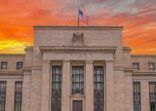Yesterday, the US Federal Reserve reduced its earlier forecast of four interest rate hikes this year to two, marking a more gradual rate rise in 2016.
The forecast is now two 25 basis point hikes this year instead of the four that the Fed forecast after it raised rates in mid-December.
However, Buckle said he was most surprised by the Fed’s support for business fixed investment.
“The big take-away for me was Yellen’s comments on credit spreads in the Q&A section of the press conference. It’s as if the Fed are buying corporate bonds.
“Of all the financial markets, it was the widening of corporate credit spreads that worried Yellen most. She said she is using corporate bond spreads as a metric for financial conditions, and argued that the widening of spreads since December (even though equity prices are largely unchanged over that period) represented a tightening.
“She is worried that the economy has soft business fixed investment and wants to see it boosted by lower credit spreads. So we have a monetary policy that tries to reduce corporate borrowing costs: how different is that from actually buying the corporate bonds like QE ECB-style?”
The Fed meeting came shortly after the Bank of Japan said it would maintain its current policy after adopting negative interest rates and authorities pledged to take additional measures to stimulate the economy.
Last week, the European Central Bank took strong action, announcing a cut in the deposit rate and in the interest rate on main refinancing operations and a €20bn increase in the monthly pace of asset purchases to €80b.
However, analysts have pointed out that investors are losing confidence in the ability of central banks to spark inflation and drive economic growth.
















